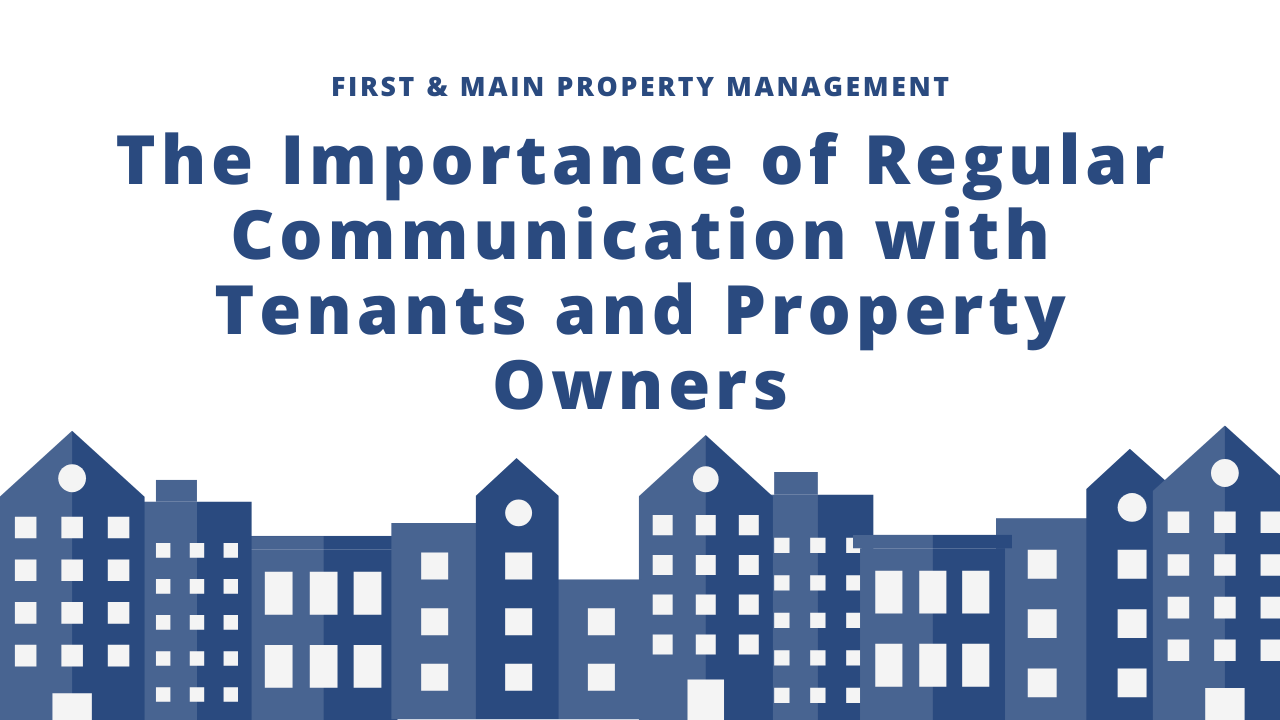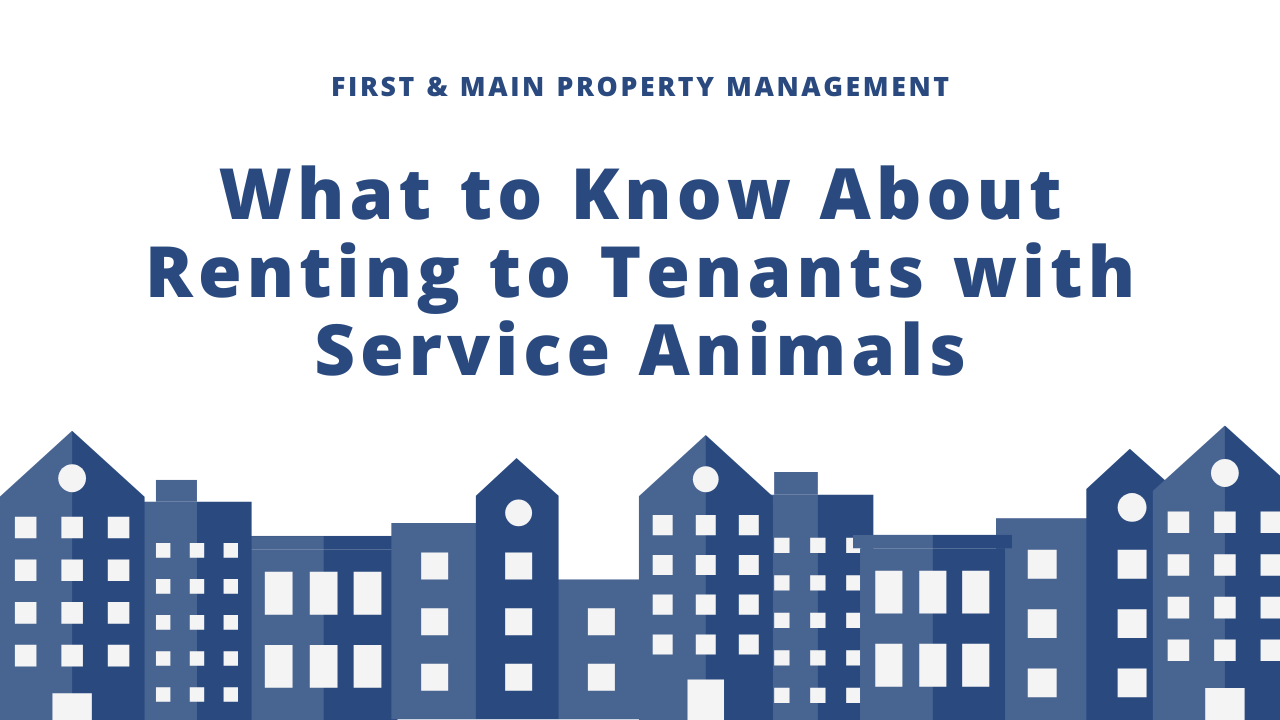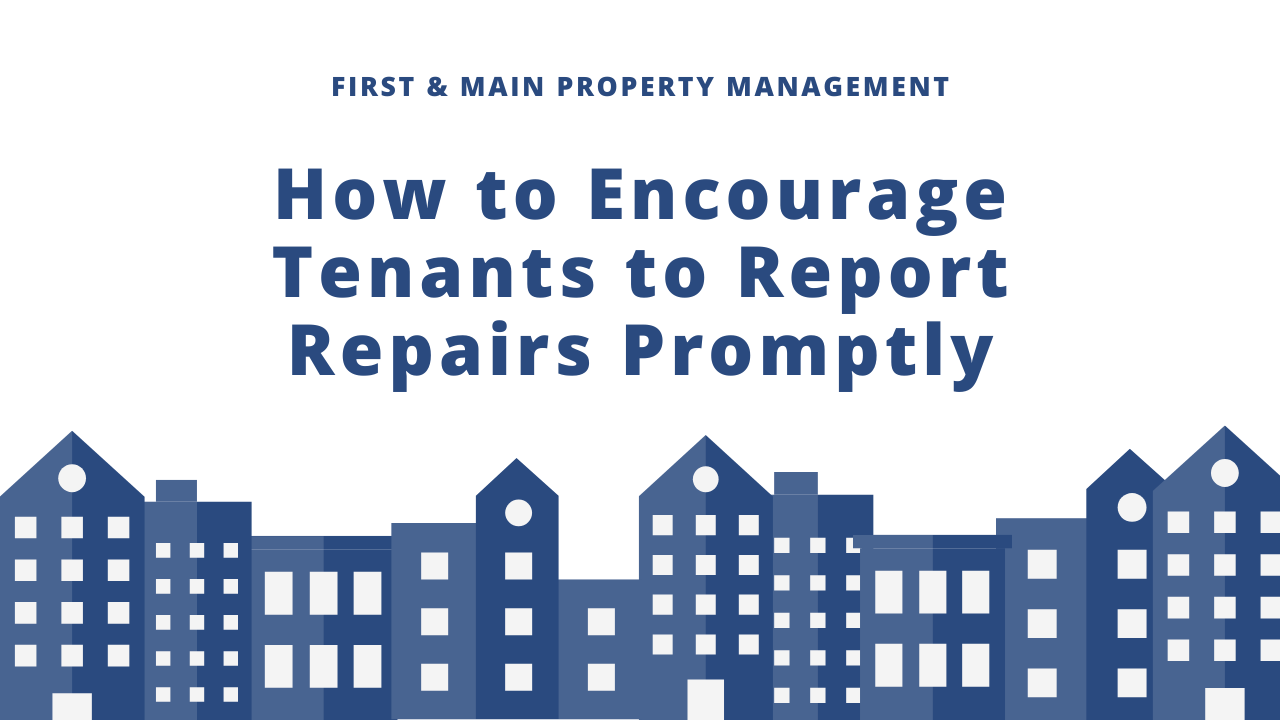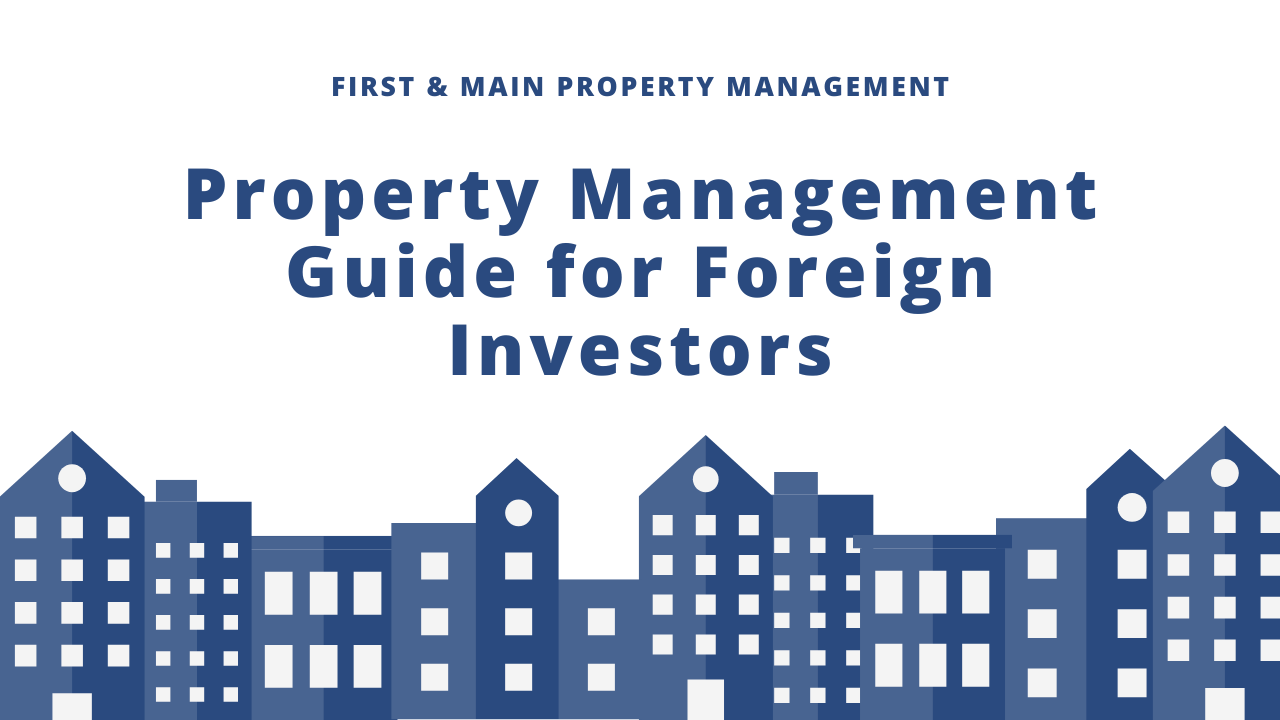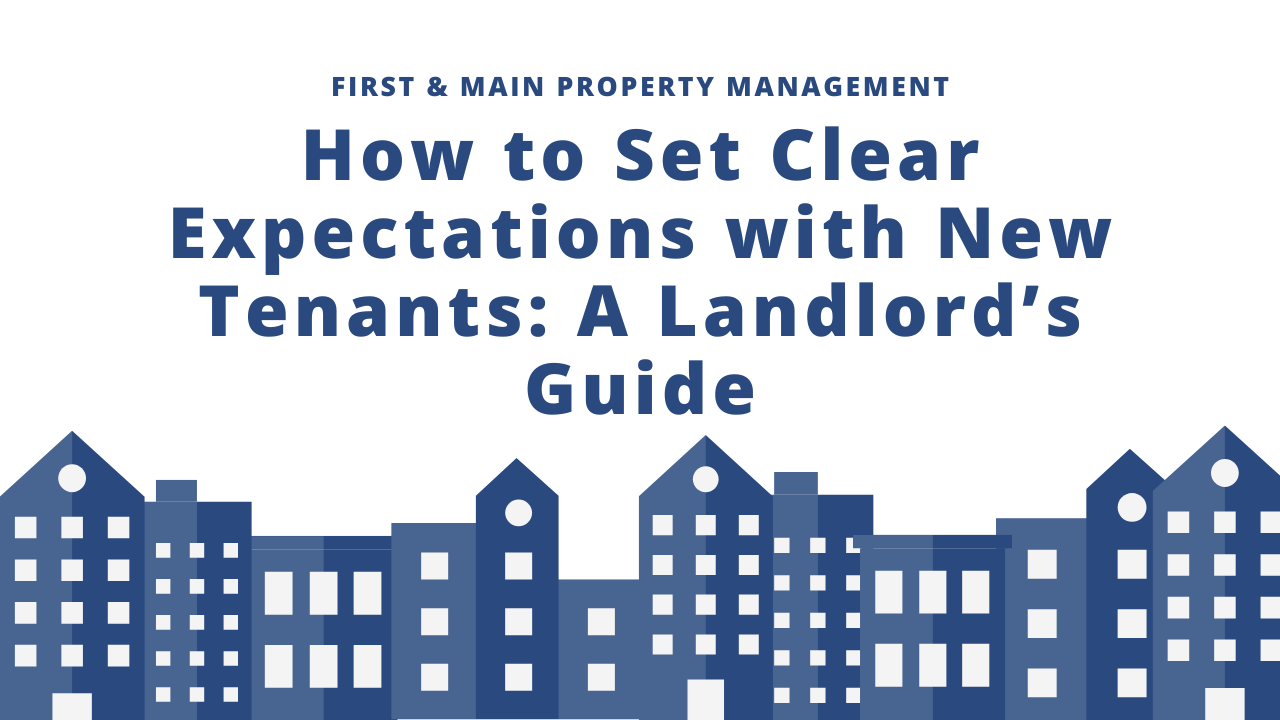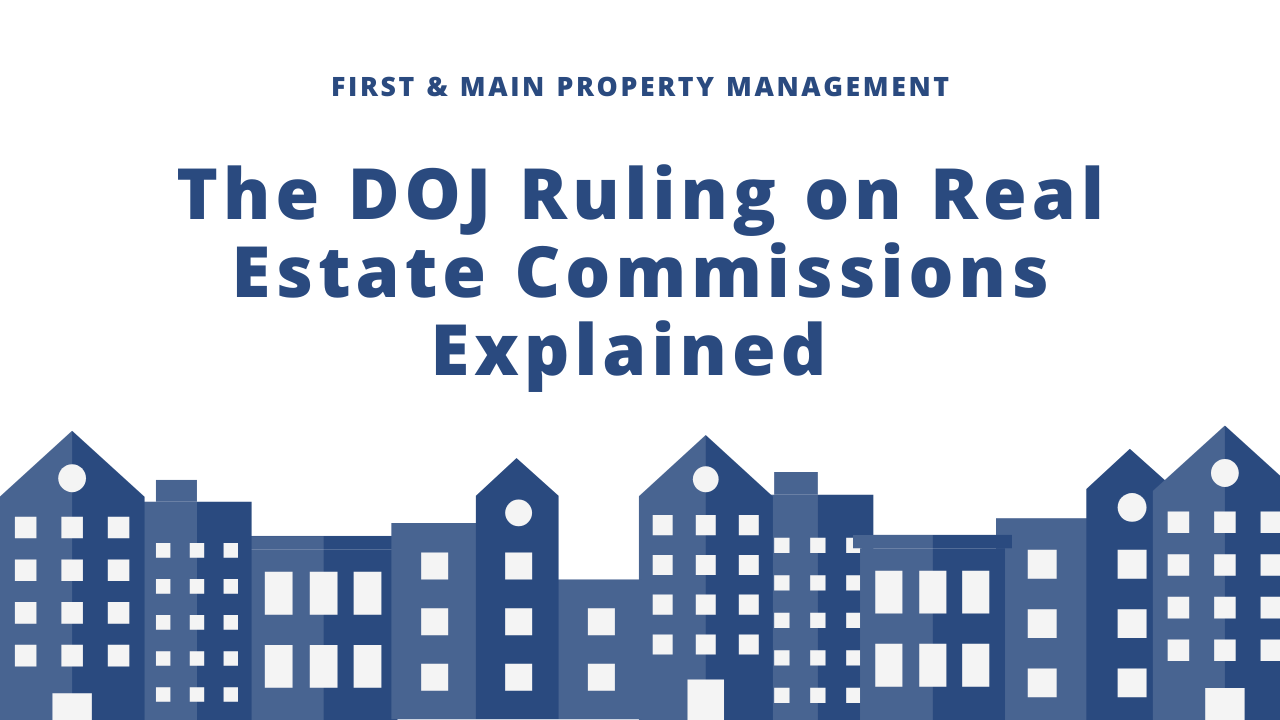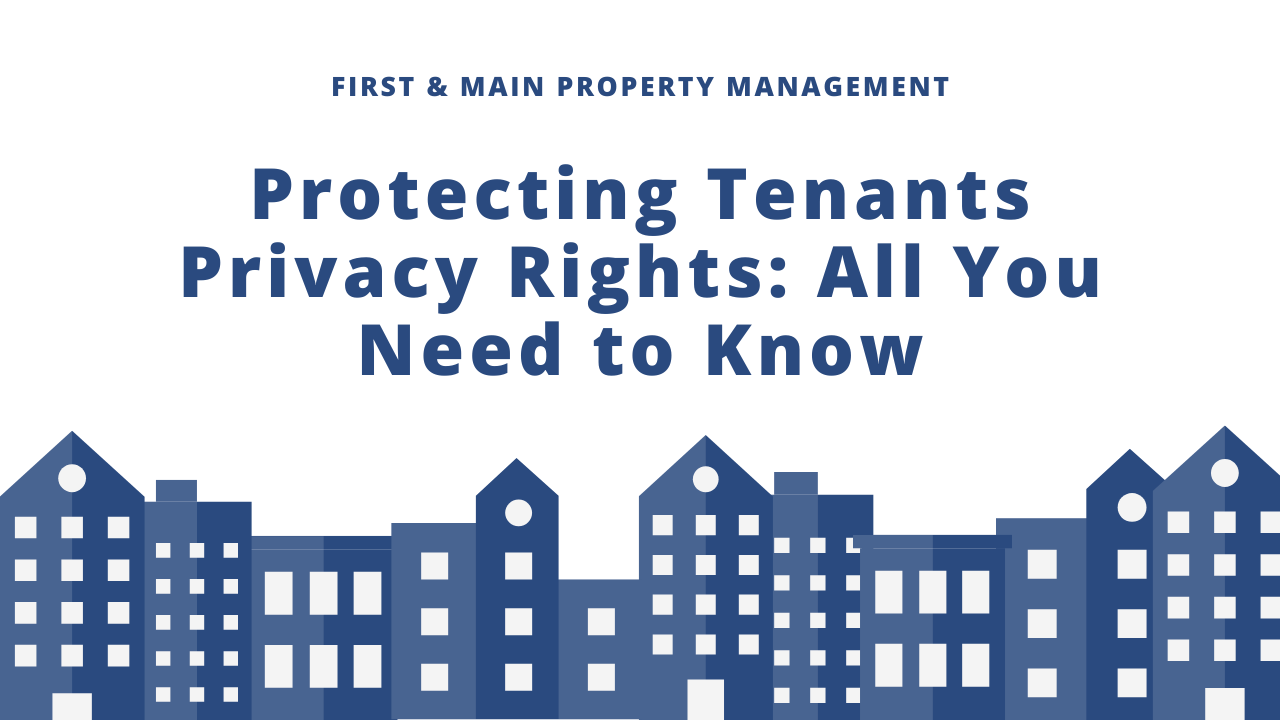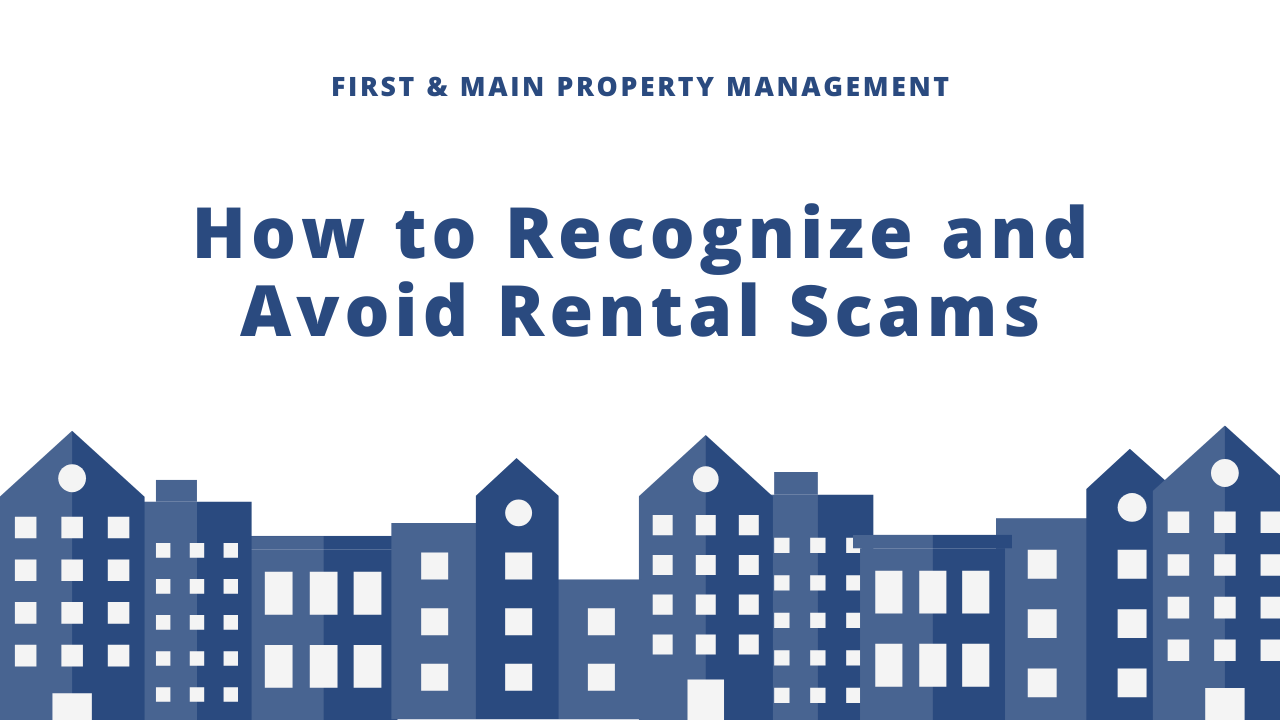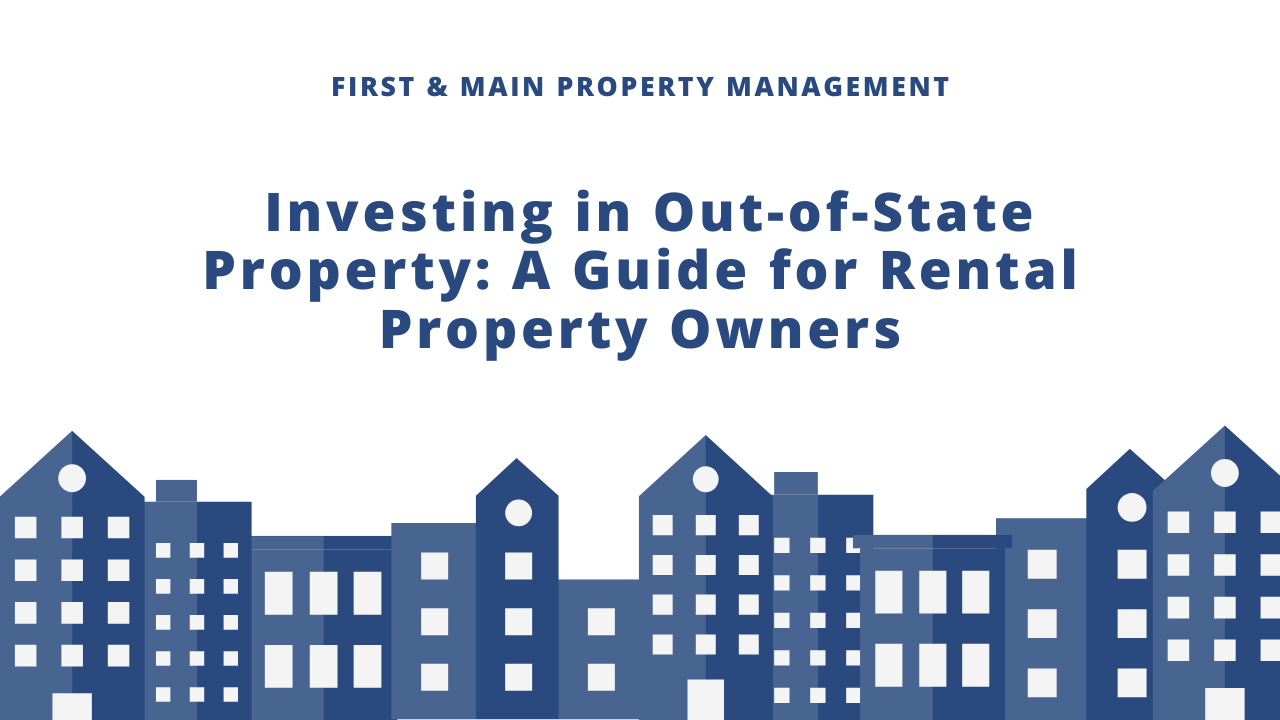How to Avoid Water Damage in Your Rental Property
Are you a landlord looking to protect your investment? Household leaks may seem minor, but they can lead to significant damage to floors, furniture, walls, and carpets.
Repair costs can quickly spiral, with home insurance claims often exceeding $10,000. That’s why it’s crucial for property owners to stay vigilant and proactive in monitoring their rental units to prevent water damage.
Common culprits of these issues include broken pipes, malfunctioning appliances, and adverse weather conditions.
To help you safeguard your property, First & Main Property Management has created this comprehensive guide to address and prevent water damage effectively. Keep reading to learn more!
What Are the Potential Causes of Water Damage?
There may be hidden water leaks that can be difficult to discover and time is crucial to spot them right away for repairs.
However, these signs may not be obvious so in case you suspect that there is a water leak, you need to focus on finding the leak right away.
As the property owner, you should use the services of a plumber to look for the leak and resolve the issue.
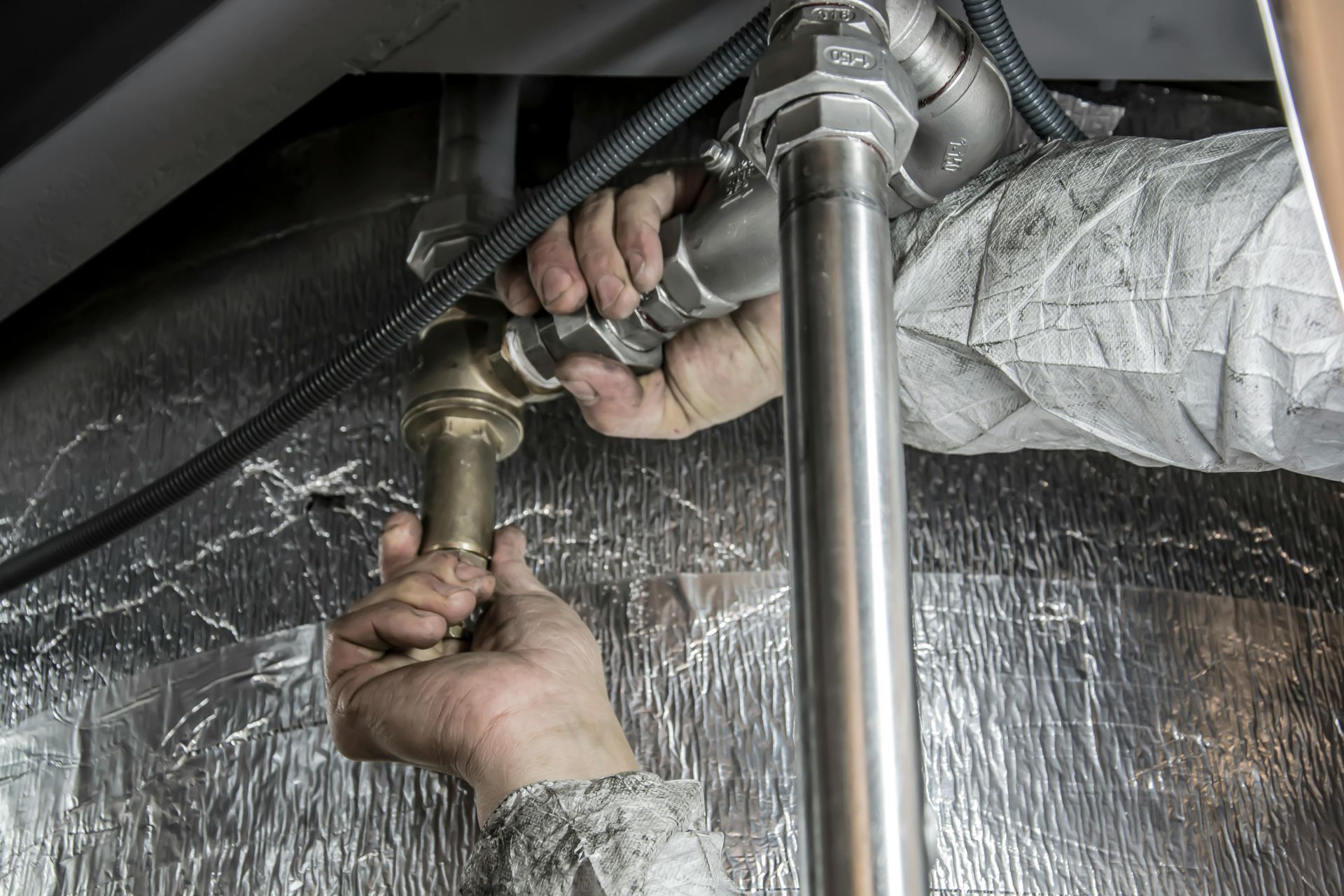
Typically, water damage is caused when the:
- Plumbing fixture malfunctions.
- Water heater bursts.
- Washing machine’s supply hose is old, they tend to fail between 8 to 9 years and will leak to water flooding your unit.
- Water builds up.
- Gutters clogged.
- Pipes leak, or get blocked and burst.
- Condition of freezing occurs.
- Condition of corrosion occurs.
- Tree roots damage your plumbing.
- Garbage disposal system is blocked due to pressure.
- Pipes are improperly insulated.
- PEX for water is damaged by rodents.
- Sewage backups occur.
What Signs of Water Damage Should You Look Out For?
As a rental property owner, you must maintain vigilance and check if these signs appear in your unit:
- Bathroom or kitchen mold or mildew that keeps coming back after frequent cleanups.
- Stained ceiling from water leaks on floors or walls.
- Cracked walls and blistered paint.
- Water pooling on floor, and buckling or cupped wood floors.
- Dry rot in wooden parts of the property.
- Spike in your water bill.
What Are the Ways to Prevent Water Damage?
Property owners can
maintain safeguards to limit water damage from occurring in their rental units. Below are some tips you can apply to avoid the risk of water damage on your rental space.
Inspect Your Gutters
When the fall season arrives or rainy days, you should start cleaning up your gutters.
Schedule an annual gutter inspection at the least for the removal of dirt and debris from your gutters.
It would help if you position your gutters downward so water would naturally drain away from the property instead of gathering at the edges, which eventually affects the property’s foundation.
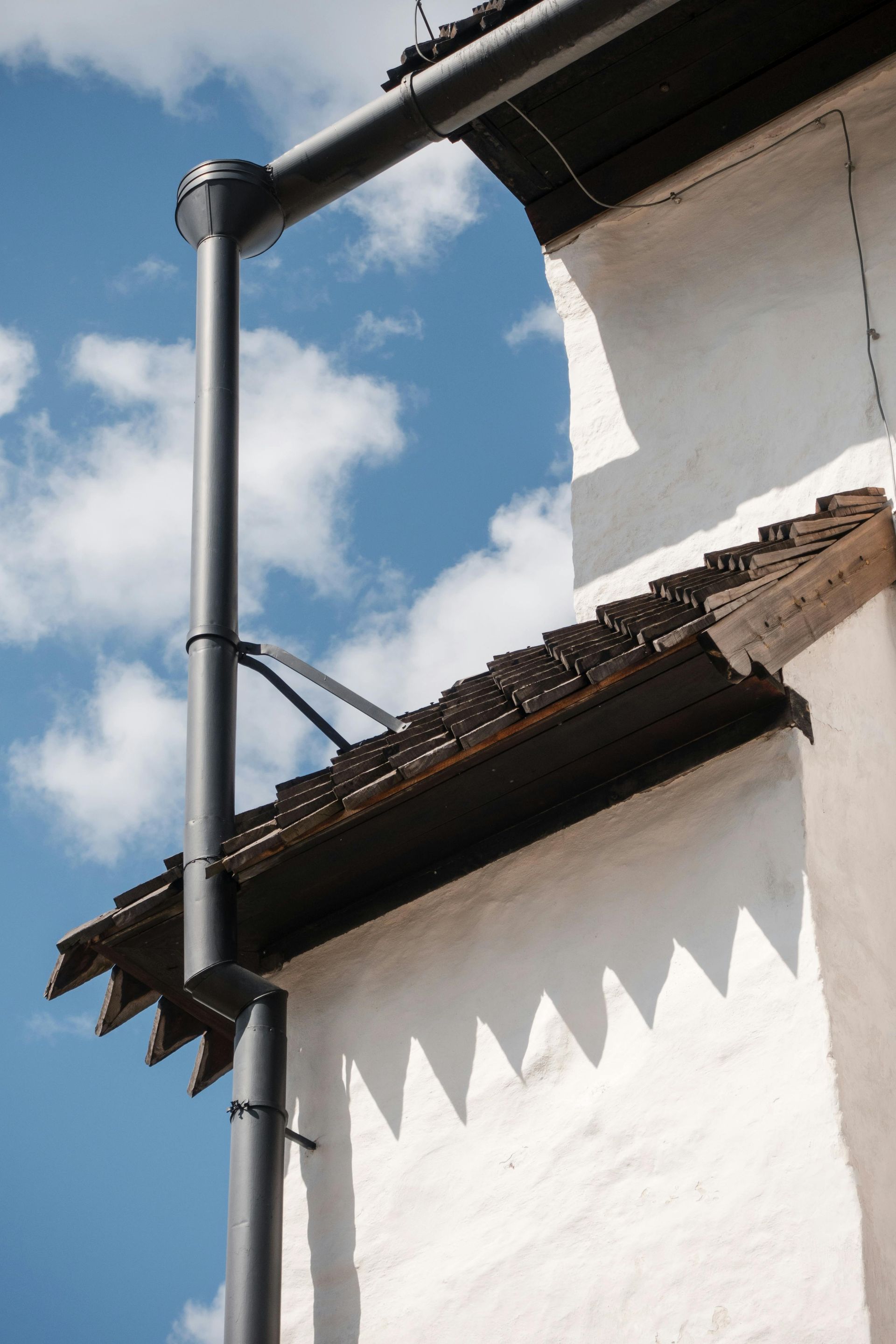
Investigate Your Downspouts
It would be helpful to extend your gutter downspouts from the property as well since you want to limit water from pooling around the building.
This is why you will need to have an effective drainage system. Make sure that downspouts drain the water far from your rental property to avoid the issue of flooding.
You will also need to inspect your downspouts for signs of damage so you can fix or replace its broken parts.
Consider Grading the Yard
Another preventive maintenance against flooding is to evaluate the grading on the property.
When there is a heavy downspout, water can easily build up on flat grounds, which can again be risky for your property.
You can perform a property renovation by creating a sloping yard to lead waters away and create a simple but effective water drainage.
Assess Outside Drains
You need to look at the outside drains, especially those located near your doors. If there is a debris buildup, then you need to clear them.
Check Your Roof
Aside from the drainage systems around your property, you also need to perform a roof inspection to evaluate if it is at risk for potential water damage.
Usually, you will often notice an issue when water stains appear on the ceiling.
Inspect your roof at a minimum of once a year so you can arrange for repairs or replacement of any damaged or missing parts to avoid water seepage, which can easily lead to property leaks and costly water damage.
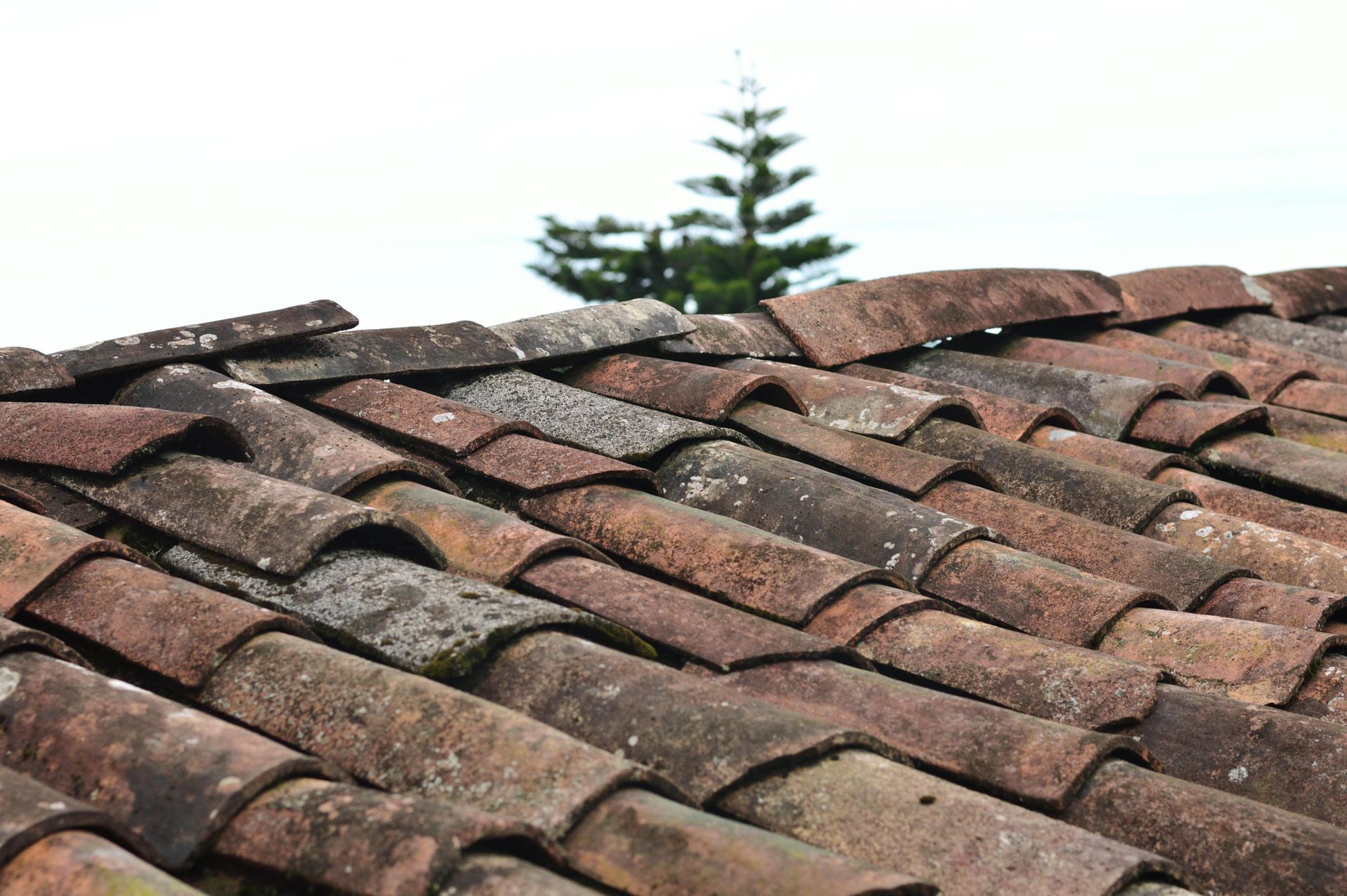
Seal Your Windows
Another common culprit of water damage is broken windows.
You need to thoroughly check for cracks on your windows and make sure that the sump pump is working properly. These are made for water removal that accumulates in the sump pit of your basement or crawlspace.
Left unchecked for damage, dampness may persist around your basement area due to a broken
sump pump.
Inspect for Wall Cracks
If there are cracks on your inner and outer walls, water can quickly seep into the foundation of your property and can gradually wear out the sound foundation of your property structure.
See if There Is Flooding Around Perimeter Walls and Drains
If you spot accumulated water around your outer walls, then you need to contact a professional contractor to repair structural issues and provide waterproofing solutions.
Properly Dispose Cooking Fats
Another cause of water damage can come from improper disposal of cooking fats. With solidified cooking oils, pipes can get clogged easily.
Avoid pouring fats, oils, and grease down your pipe drains and opt to place them in disposable containers until you can throw them in the trash bin when it cools off and hardens.
Remove Drain Blockages on Your Floors
In your bathroom, there may be items that will obstruct the drainage of water, such as dirt buildup and fallen hair. Schedule a weekly cleanup to limit water damage inside your property. Otherwise, water can overflow from your bathroom when water flow is blocked.
Bottom Line
Water damage can be one of the most significant expenses for property owners, but it doesn’t have to be inevitable.
By following these preventive measures, you can protect your investment and minimize costly repairs.
If you find it challenging to manage these tasks, consider hiring a reliable property manager to oversee maintenance duties. Contact First & Main Property Management today to learn how we can help you safeguard your property!


